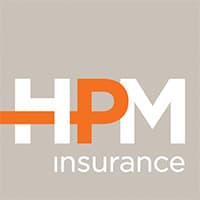New Hampshire is an at-fault state, which means drivers found to have caused an accident are financially responsible for compensating the other party for damages. Because of this, how fault is determined is extremely important. Here’s a general rundown of how insurance companies generally determine fault and, ultimately- who pays.

How is Fault Determined in a Car Accident?
New Hampshire is an At-Fault State
New Hampshire follows the traditional tort system, commonly called at-fault today. This normally means that the driver who caused the accident is liable for any resulting harm, including injuries, property damage, pain and suffering, and loss of income.
Insurance Companies Determine Fault
Insurance companies mainly determine fault after the fact. It’s not the responsibility of drivers or police to determine fault while at an accident scene, although the information collected at a scene is considered in determining fault.
When an accident claim is filed, the insurance company typically assigns an adjuster (either someone they employ or an independent adjuster). The adjuster reviews all evidence and often inspects vehicle damage in person before determining fault.
General Guidelines on Fault
While fault is always accident-specific, drivers can usually expect the following determinations in common accidents:
- Rear End: The driver hitting another vehicle from the back is almost always at fault.
- Parked Car: The driver who hits a parked car is almost always at fault, regardless of whether the car is legally parked or not.
- Left Turns: The driver making a left turn is responsible for ensuring the traffic is clear in both directions.
What if the Insurance Companies Disagree on Who is "At Fault?"
As insurance companies adjust many claims, most claims are settled agreeably between the carriers. That said, if fault can not be agreed upon, it is common for the claim to go before a third-party mediator who is agreed upon by both companies.
As you can imagine, this is not a quick process. However it is the carriers that duke it out, and though you may be out your deductible until the claim is resolved, if you have collision coverage on your policy, you should be able to get your vehicle fixed and move on.
If I am Found At Fault in an Accident, When Will I See My Premium Increase?
Even if you are found at fault in an accident, you will not see the impact on your premium until the policy renews. For example, if your car insurance term is Jan 2, 2024 - Jan 2, 2025, and you were determined at fault in an accident on Jan 10, 2024, your premium would increase as of January 2, 2025. (If you have a six-month policy term, you will see the impact sooner.)
That said, it all works out. The at-fault accident will remain on your policy for three to six years, depending on how long your insurer looks at the claim history (which does vary by carrier).
The Importance of Auto Insurance
In New Hampshire, auto insurance technically isn’t required if drivers can show they have the financial resources required by the state. That said, insurance is always recommended so that drivers have much better protection.
One way that protection can show up is in the fault-determining process. If there’s a disagreement over who’s at fault, few drivers have the expertise to hire an adjuster and determine fault. If two insurance companies disagree, they have the experts and legal professionals to sort the matter out.
The Importance of Documentation
In determining fault, insurance adjusters consider whatever documentation is available to them. This can include:
- Photos or videos taken post-accident
- Police report
- Statements made by drivers
- Statements made by witnesses
- Dashcam footage
- GPS data
- Security camera footage (if available)
Not all of this is always available, but adjusters will want to review whatever they can obtain. Thus, it’s important to ensure that documentation is as accurate and complete as possible. To this end, it’s normally recommended that drivers take the following actions post-accident:
- Police: Contact the police to file a report. This can serve as an objective document showing what’s observed and said, and is particularly useful if there’s a disagreement.
If damage exceeds $1,000, New Hampshire requires that the DMV be notified within 15 days. The police will usually take care of this if they respond to the scene and write up a report. - Photos: Take pictures and/or video of the scene. Photos of the damage and the immediate surroundings, as well as a general video of the scene, may be important.
- Witness: Try to obtain the contact information of anyone who sees the accident and stays in the area (i.e., not drivers zooming by). This may not be necessary in the case of a minor fender-bender, but witnesses could be called on if an accident results in severe injuries or death.
Biased witnesses, such as passengers in the vehicle, will be considered, but their likely bias will also be considered.
Documentation is important, but only after everyone involved is safe. It’s also generally okay to move vehicles and people, to safety before police arrive. Always call an ambulance if one is needed.
Drivers can speak with an insurance agent who specializes in auto insurance for further guidance on what to do after an accident.
Get Help With Auto Insurance
If you have any questions about auto insurance, whether related to accidents or other aspects, contact the independent insurance agents at HPM Insurance. We’re here to help.


